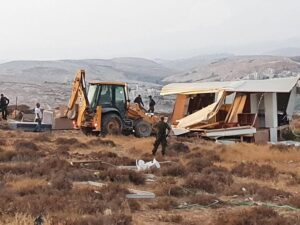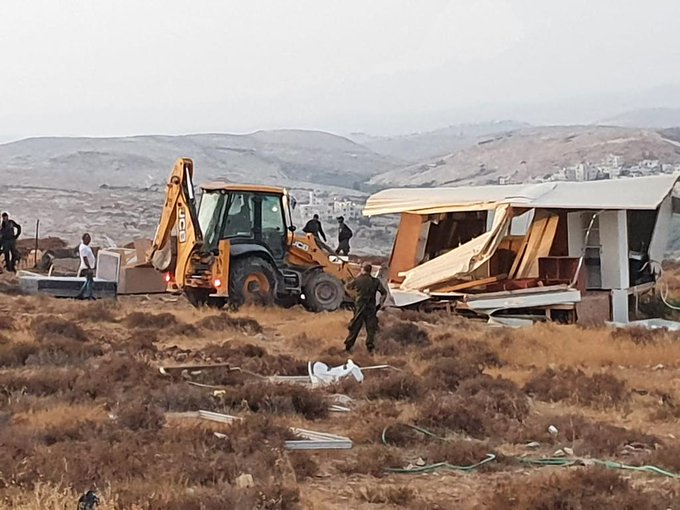The hilltop settlement has been subject to ongoing controversy and legal dispute since the early 2000s.

The Ramar Migron outpost was demolished by IDF troops early on Thursday morning, Hebrew media reported.
Religious Zionist Party MK Simcha Rothman confirmed the demolition on Twitter shortly afterward, criticizing “the destructive forces” of Defense Minister Benny Gantz, Justice Minister Gideon Sa’ar and Interior Minister Ayelet Shaked, saying that they do not care about the law.
“Each caravan [in Ramat Migron] is overlooked by four villas and a multi-lane road built illegally by Arabs, and the civil administration does nothing,” he said. “Selective enforcement is a crime. And when it’s only against Jews, it’s a hate crime.”
“Each caravan [in Ramat Migron] is overlooked by four villas and a multi-lane road built illegally by Arabs, and the civil administration does nothing. Selective enforcement is a crime. And when it’s only against Jews, it’s a hate crime.”
Religious Zionist Party MK Simcha Rothman
According to reports of the demolition, dozens of police officers and Civil Administration inspectors arrived at the outpost at dawn, destroying the homes of the three families living on the hilltop, as well as their makeshift synagogue.
“We were woken up at 4 a.m. by wild knocking at the door,” recounted Noa Yered, one of the residents of the hilltop settlement. “Before we could even find out who it was, dozens of police officers broke into the house, entered the bedroom, and informed us that we had to leave immediately. They didn’t even let us get dressed and organized privately.
“It is sad and infuriating to see how the State of Israel is fighting Jewish pioneers who went to settle the land and fight against the Arab takeover.”
What is the history of Ramat Migron?
Ramat Migron has been subject to ongoing controversy and legal dispute since the early 2000s, when then-prime minister Ariel Sharon announced his intention for the settlement, then home to around 300 people, to be demolished.
Since then, there have been ownership claims to the land from Palestinian families in the nearby towns of Burka and Deir Dibwan, as well as others. Today, the number of people living in the outpost is greatly reduced, and ownership claims have still not been settled.

